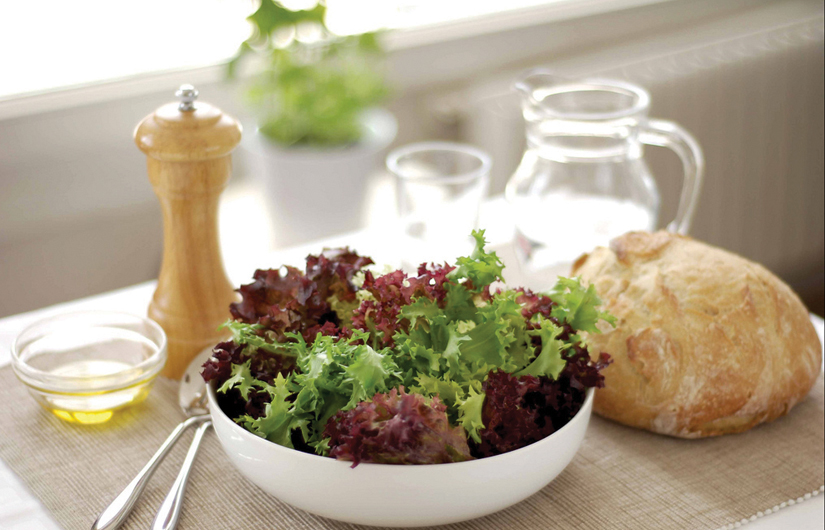The changes in urban life in 2014 are dynamic and colourful but also have repercussions on all aspects of life. Through advances in science and technology we’ve reached a better understanding of the world around us and continue to develop equipment and facilities that improve human well-being. We’ve also seen new diseases and ailments such as avian flu or the 2009 swine flu pandemic.
The situation is compounded by pollution, destruction of natural resources and the environment, and increasingly virulent natural disasters. Such facets of modern life substantially reduce our quality of life.
If we look into the differences between the genders, we can manage our health optimally for better well-being. This article reviews some of the ingredients that can boost health in men and women.
- Differences between the sexes
Besides the obvious visual and physical differences between men and women (one thing we all know is that men are from Mars and women are from Venus!), there are aspects we need to think of when managing our health. For starters, females are different from males from the time of conception, when the egg is fertilized and receives the X or Y chromosome that determines the gender of the foetus. This causes later changes in adolescence when the oestrogen hormone has effects on the body that develop into greater physical differences.
On average, women are smaller and lighter in size and weight but percentage of body fat is higher. Women have less muscle and smaller hearts and lung capacity, which also means a lower metabolic rate.
Besides these biological differences, women need particular nutrition, and due to the slower metabolism it is easier to gain weight. Women should be aware of their food intake and make sure they’ve taken in the main nutrition groups (protein, carbohydrate, fat, vitamins and minerals). Hormonal changes as well as blood loss during menstruation also have to be taken into account. If women are pregnant or nursing babies, nutritional needs will again be different. And the post-menopausal period requires significant changes in nutrition to maintain a good quality of life.
Healthy eating starts with basic understanding. A well rounded diet consisting of low-fat protein and dairy, good carbohydrates, plenty of fruits and vegetables, and the so-called good fats, such as marine fat from fish, is needed to support women’s specialized health needs. Other micronutrients, vitamins and minerals are also indispensable at levels prescribed by the so-calledRDA (recommended daily allowance), such as 90mg a day of vitamin C and 800mg of calcium for adults. Normally our daily diet provides sufficient protein, fat and carbohydrates but is unlikely to meet the demand for vitamins and minerals. There fore it is recommended to take a multivitamin and mineral supplement and a calcium tablet to meet the daily physical requirements for women.
- Nutrition for women
Each stage of life for women brings with it certain health concerns. Adolescent girls begin to experience fertility at a time of rapid physicaland emotional growth, and needthe right building materials to support these changes. With the child-bearingyears come the trials of monthly cycles, as well as preparing for pregnancy and lactation. Later on,menopause provides less protection from oestrogen and age-related health issues. Good nutrition can provide the support needed for optimum health in women of all ages, and is a route toa good quality of life along with a good body shape and being equipped with enough energy to fight offthe depressions of modern city life.Nutrients essential for women includeiron for blood loss during the period,vitamin D and calcium for healthybones, fish oil (omega 3 fatty acids)for pregnancy and better heart health and vitamin B complex for energy an dimproving body metabolism.

- Nutrients for a desirable bodyshape
Having a slim torso tends to be one of the most desired attributes for women, but in fact it is not so prevalent and is hard to achieve. The proper weight can be maintained by monitoring the energy taken in through food and the activities pursued. If balanced, the body will neither gain nor lose weight. If a bit more is burned off than taken in, weight will reducegradually. Since this route is hard to follow, some studies focus on the food components that counteract weight gain. Although it is easy to find supplements on the market that claim to reduce weight, it is hard to find one backed up by properly designedstudies. One nutrient worth mentioning in this respect is the active ingredientin tea leaves (Camellia sinensis)called catechins. The benefits ofbrewed tea have been well documented for centuries, in China and Japan andnow wide spread around the world. A recent study conducted among obese Chinese that fortified their tea with catechins (125.5mg) for 12consecutive weeks found that the fat in the surface skin layer, body weight and total fat significantly reducedcompared to the control group.




















































































































































































































































































































































































































































































































































































































































































































































































































